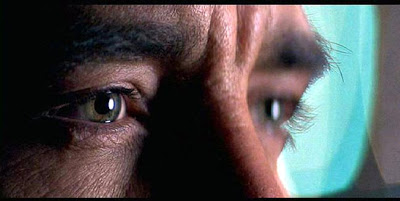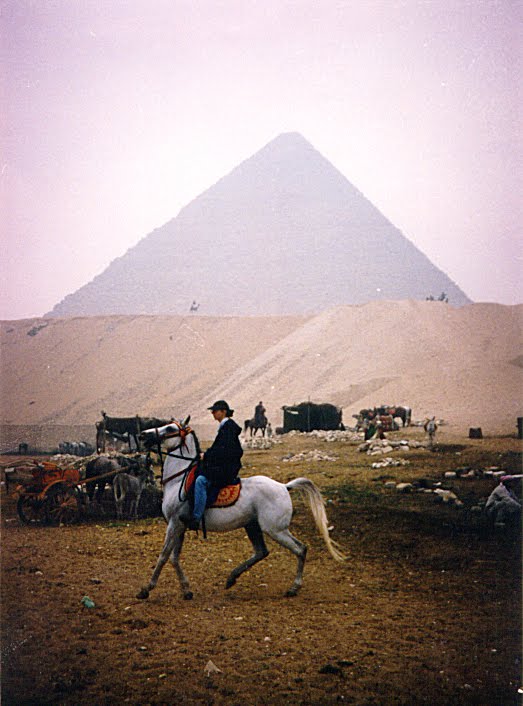
The Going-to-the-Sun road above McDonald Valley in Glacier National Park
[Joke (?) courtesy of my dear Montana-born friend, Linda, buried under 6 feet of spring snow in Spokane, Washinton.]
PHONES IN CHURCH
A man in Topeka, Kansas decided to write a book about churches around the country. He started by flying to San Francisco and started working east from there.
Going to a very large church, he began taking photographs and making notes. He spotted a golden telephone on the vestibule wall and was intrigued with a sign, which read 'Calls: $10,000 a minute.'
Seeking out the pastor he asked about the phone and the sign. The pastor answered that this golden phone is, in fact, a direct line to heaven and if he pays the price he can talk directly to GOD.
The man thanked the pastor and continued on his way. As he continued to visit churches in Seattle, Dallas, St. Louis, Chicago, and Milwaukee and around the United States, he found more phones, with the same sign, and the same answer from each pastor.
Finally, he arrived in Montana, upon entering a church in St.Ignatius, behold - he saw the usual golden telephone. But THIS time, the sign read 'Calls: 35 cents.'
Fascinated, he asked to talk to the pastor, 'Reverend, I have been in cities all across the country and in each church I have found this golden telephone and have been told it is a direct line to Heaven and that I could talk to GOD, but in the other churches the cost was $10,000 a minute. Your sign reads only 35 cents a call. Why?'
The pastor, smiling benignly, replied, 'Son, you're in Montana now ...... You're in God's Country, It's a local call.'

Trails of the Cedar Bridge in Glacier National Park

Let's hear it for the Mountain Goat, official symbol of Glacier National Park!
Read more!
Tuesday, March 24, 2009
God's Country
Posted by Nancy Dietrich at 9:55 AM 1 comments
Friday, March 20, 2009
Struggling to practice Arabic in Egypt

Midan at-Tahrir, downtown Cairo
I found this article this morning and it carried me right back to my year in Cairo.
I, too, found that the greatest struggle in Cairo (besides keeping weight on) was finding any Arab willing to talk to you in Arabic instead of English. Taxi drivers, in the beginning, were my only subjects to practice on, and I am convinced they were all natural born linguists. I took hundreds of taxi rides in my year there and I only remember ONE DRIVER who admitted he knew only Arabic. I should have hired him for the rest of the year!
As the fellow in the article states, you soon find yourself pretending not to be an English-speaker so they'll be forced to speak Arabic with you. I don't know what the writer looks like, but I'm blonde with blue eyes, so my first try was telling the driver I was German and spoke no English.
I should not have been shocked when he answered me back in fluent German, at which point I had to confess that, though I am 50% German, I only know 5% of the German language.
Eventually I had better luck telling them I was Norwegian. If I was too tired to argue, I just got used to speaking Arabic to Arabs who always spoke English to me. I mean, after all, we were both just trying to learn a new language.
The only surefire way to be immersed completely in the local language was to get out of town. I was extremely fortunate to get invited to a four-day wedding in a remote village north of Cairo in February of 1994. Four days of being grilled non-stop in the Egyptian dialect by numerous generations of very curious villagers did more to advance my fluency than the entire year of colloquial classes at The American University of Cairo.
Struggling to practice Arabic in Egypt
By PETER PRENGAMAN, Associated Press Writer Peter Prengaman, Associated Press Writer – Mon Mar 16, 1:36 pm ET
CAIRO, Egypt – It was a simple question that I know I posed correctly in Arabic.
"What time does the movie 'Stolen Kisses' begin?" I asked the guy at the ticket booth in my best Egyptian dialect.
"At 7 o'clock," he responded in heavily accented and barely understandable English, as if I hadn't just spoken to him in Arabic.
"How much are the tickets?" I said in dialect, refusing to speak to him in English.
"Twenty Egyptian pounds," he answered, again in English.
I had come to Cairo for a month to do an intensive Arabic course after studying the language three years at UCLA, and had become accustomed to such linguistic battles. With a small group of men hovering to watch this ridiculous conversation unfold, it was time to employ a surprise maneuver that would be my best chance for linguistic triumph.
I shook my head in disbelief, and then, switching to Modern Standard Arabic, and speaking louder, asked the man in a sarcastic tone: "Do you even speak Arabic?"
The question produced laughter from him and the audience, but it had the desired effect: By asking in the written and more formal Arabic that only educated Arabs are truly versed in, I had changed the equation. Instead of trying to show me he spoke English, he was now on the hook to show me he had a good level in standard Arabic — in essence, that he had a certain level of education.
"Yes, of course," he said in Arabic, the standard variety, no less. "You are funny."
I told him that since we were in Egypt I figured we might as well speak Arabic. We both had a laugh, and after a few more exchanges we shook hands. I told him I would come back later to see the movie.
When it comes to culture, history and even Arabic, Egypt is arguably the center of the Arab world. Egypt strikes a middle ground, both philosophical and geographical, between the more liberal Arabic-speaking countries like Morocco to the west and conservative Gulf nations like Saudi Arabia to the east. And as Egyptians will proudly tell you, their dialect is the most widely understood worldwide thanks to Egyptian movies and music that for decades have been beamed into Arab households across the Middle East.
Despite all that, trying to learn Arabic in an Arabic-speaking country can be difficult. For one thing, Egyptians jump on any chance they get to practice English, even if they only know a few words. And spoken Arabic dialects are hard to master no matter which country you try to learn them in, because they're often so wildly different from standard Arabic that they seem like a different language.
Most universities in the United States and other English-speaking countries only teach standard Arabic, and not the dialects of particular countries. Standard Arabic is the written language of schools, diplomacy, banking and news. It's not, however, a language that anyone outside of those circles speaks on a daily basis.
So does it make sense to learn it? Wouldn't it just be better to study a dialect? These are questions that perplex every student of Arabic. My short answer is that if you just learn a dialect (likely on your own, because few places teach them), you may be limited to that one country. Also, dialects are not widely written. You might be able to read a street sign, but not a newspaper or magazine if you don't know formal Arabic.
The reality is that the Arab world has a standard written language and then several spoken dialects (so as not to offend Arabic purists, I should also mention Classical Arabic, the language of the Quran and Arabic's highest written form).
When I arrived in Cairo and got in a taxi, I thought I was in the wrong country. Because I had had very little training in Egyptian dialect before arrival, I spoke to the driver in standard Arabic. He understood me — most Egyptians comprehend it but can't converse in it — but I had no clue what he said in reply.
Eleven terms of high-level Arabic at UCLA, including advanced courses with poetry, Quranic verses and full compositions, and I couldn't even shoot the breeze with this guy!
Within a few weeks, I was more comfortable with the dialect, in large part thanks to an intensive course at the International Language Institute that focused on helping advanced students morph their standard Arabic into something they can use on the street.
One of my coolest experiences in Cairo happened at a kiosk. Buying a newspaper in Arabic, I struck up a conversation with the guy working at the kiosk, Ahmed. An avid reader, Ahmed had a very good level of standard Arabic and was proud to use it. A few minutes later, his friend Mohammed arrived.
Mohammed saw my newspaper and told me he couldn't read or write since he had never gone to school. Curious about the United States, as many Egyptians are, Mohammed had question after question. But I struggled to understand a lot of what he said because he of course spoke in dialect.
So Ahmed jumped in, translating for me Mohammed's questions into standard Arabic. I would then respond in standard Arabic, and if Mohammed didn't understand, Ahmed would then translate what I said back to dialect. The fascinating 45-minute conversation hit home for me just how complex Arabic can be, even for native speakers.
The second challenge in Egypt is communicating in English. As in many foreign countries, there are a handful in Egypt who speak it amazingly well, while the vast majority have a level somewhere between zilch to intermediate.
The difference is that so many Egyptians seem to believe they need to use what they know with foreigners. Of course, so few foreigners speak Arabic that Egyptians assume it's better to use English — and getting them to change that assumption can be tough.
"Speak to me in English," the guy at the train station in Alexandria told me when I asked for a ticket in Arabic.
I did just that, responding in unfiltered and normal-speed English just to test this guy's chops (after all, he had questioned my manhood, in linguistic terms).
The result? He stared at me blankly, and we were reduced to gestures and grunts.
This passion for English may have several roots. Egypt is a former British colony. English-language movies, TV and culture are ubiquitous. Plus, English is the worldwide language of business, and Egyptians are some of the toughest negotiators you'll ever meet.
On the street, it comes down to this: An Egyptian man who knows 10 words of English will often, literally, use them over and over in conversation, even if you both are speaking in Arabic and it's clear you understand. For example, while speaking Arabic, when he comes to a place where the word "good" could be used, and he knows that word in English, he'll insert it.
That can be disorienting. When you don't understand something, it's hard to know if he used a few words in English that you didn't recognize because of poor pronunciation, or if you simply just didn't understand the Arabic.
Attempting to avoid English, by week two I was telling taxi drivers and others I came across that I was Spanish or French, and that I didn't speak English. That neutralized English somewhat, but pretending that I didn't understand my native language felt strange.
Of course, studying Arabic in Egypt will help students develop a much better grasp of the language than anything they could do in the United States.
Egyptians may be enamored of English and have a hard-to-master dialect, but Arabic is the national language and it's alive and well. Add to that fun and very social people — not long after meeting someone, you often find yourself at a cafe sipping tea and smoking flavored tobacco out of a hookah pipe — and you've got a formula for what any stint abroad should be: an adventure.
Read more!
Posted by Nancy Dietrich at 9:22 AM 0 comments
Wednesday, March 18, 2009
Ginger's Weekend

The classic sulk of a pit bull.
Posted by Nancy Dietrich at 3:07 PM 0 comments
Labels: dogs, Ginger Ale, pets
Friday, March 13, 2009
Braveheart
Posted by Nancy Dietrich at 10:26 AM 0 comments
Labels: dogs, Ginger Ale, pets
Thursday, March 12, 2009
Ginger hates peas
Dr. Silbernagel did an amazing piece of work on Ginger yesterday. I know that sounds sarcastic, but this time it isn't. I picked her up this afternoon and must admit my stomach flipped when I saw the post-op radiographs, despite knowing exactly what they'd look like. Externally, she is swollen and bruised (side effect of having such light skin) with a bit of razor burn, and internally she looks like Barbaro's cousin after his initial surgery. Barbaro has more than 20 pins, however, and I think I counted 5 or 6 in each of Ginger's legs. I actually have the link to the x-rays and I will try and put those up tomorrow for any who are interested in this relatively new procedure.
I also took some photos as soon as we got home, and I'll be taking more to document her progress. I am too tired to upload them tonight, so deal with it.
She is taking to the kennel again like a fish to peanut butter. At present, however, she is in no position to overpower anyone, even me. Plus, she figures out pretty quickly that freedom hurts far more than being in a cushy kennel. Taking her out to the bathroom a few minutes ago I felt like throwing up because I kept imagining her pain. (Anthropomorphism? Guilty.) Although any dog that can manage to balance herself almost exclusively on her two front legs has got to be in a fair amount of pain. Do not fear--I did have her back end in a sling--but she still usually puts some weight in it. I was very encouraged after a minute or two when she relaxed just a little and started wagging her tail, just happy to be outside and away from a scary hospital, I imagine. (They said she was pure sweetness her whole time she was there, but was very frightened and shivered a lot. Ginger hasn't trembled in years, so I take that pretty seriously.)
So I'm going down to sleep on the sofa or floor or somewhere by the kennel for when she wakes up and wants water or love or morphine. I have promised her it will only be this bad for a couple more days and I hope to God I am telling the truth.I'm busy. Come back tomorrow.
Posted by Nancy Dietrich at 10:43 PM 1 comments
Labels: dogs, Ginger Ale, peas, pets
Wednesday, March 11, 2009
Ginger is out of surgery
He added, “Phase 1—done. Phase 2—just beginning.” That would be recovery. He didn’t mention Phase 3—bankruptcy.
Thanks to all for your prayers and concern.


Posted by Nancy Dietrich at 4:14 PM 0 comments
Labels: dogs, Ginger Ale, pets
Ginger is in surgery and I am eating chocolate
Ginger went in today for major surgery to repair two torn ACL ligaments. She is having a new procedure done that I can't begin to describe, so I'll let her surgeon explain it.
What is TIBIAL PLATEAU LEVELING OSTEOTOMY (TPLO)?
Treatment
The TPLO technique levels the tibia plateau (top surface of the tibia) to prevent the abnormal forward motion of the tibia that occurs after cranial cruciate ligament injury. The resultant repair is more durable than other techniques with fewer failures and a more rapid return of full function. Prior to surgery, the tibial plateau slope is measured on x-rays. After performing the osteotomy (cutting the bone), the tibial plateau is rotated a specific amount thereby neutralizing the abnormal cranial drawer. The tibial plateau is next secured in place with a specially designed bone plate and screws. After the bone heals in its corrected position, the plate is just a passenger for life. The result is a knee that is dynamically stable, thereby provided good limb function and slowing the progression of osteoarthritis over time.
For more information visit Veterinary Specialty & Emergency Care.
Posted by Nancy Dietrich at 12:21 PM 0 comments
Labels: dogs, Ginger Ale, pets
Thursday, March 5, 2009
Beyond Borders
I watch movies for a couple of simple reasons. Sometimes, it's to experience romance vicariously. Other times, it is about forgetting my mundane existence for 2 hours (plus DVD extras, God bless 'em). Much of the time, I am watching on an emotional level and an analytical one, trying to learn from the writer and director how to construct a story to help my writing. And lastly, I do it to experience places I can't see from my upstairs office window. Maybe they are places I've been before, like movies set in the Middle East or Ireland, for which I still have feelings of nostalgia or historical curiosity. Or maybe they are places I have never been and never will be.
I had two Netflix movies to choose from last night. Ironically and coincidentally, both starred Clive Owen (collective gasp from the readers) but each had a different female lead. Beyond Borders had Angeline Jolie, and Derailed had Jennifer Aniston. I guess you could say Clive and Brad could form their own little club....
My point here is that neither of these women impress me, acting-wise. I don't consider either a good actor, and unlike watching Brad Pitt films, I can't just watch for the scenery, because they don't do anything for me in that department, either. (For the record, I do think Clive Owen can act. I am so completely biased, however, I have no idea if that is true.) Movies with actors I dislike should carry a warning label of "CP" for "Co-star Poisoned." So with either film last night, I worried that I would be too distracted by the co-star to enjoy the story or Clive Owen.
I went with Beyond Borders, attracted more to a tale of humanitarian efforts than one concerning escaping the ramifications of infidelity. (BB has its infidelity, too, but that is not all there is to the story.) And on a personal level, I have greater respect for Jolie than Aniston. One focuses all her time and energy on perfecting her golden tan, while the other actually does substantial humanitarian work. And for those who sneer at that--how many of us can truly say we've acccomplished anything remotely close to what she has since starring in Beyond Borders, which is when she adopted Maddox and began her humanitarian work in earnest? That's what I thought.
Though distract by those inhuman lips at first, I was soon quite unexpectedly sucked deep into the story. One, I am a romantic at heart, despite the angry frosting, and two, I am a frustrated humanitarian, who has been rejected by a few separate divisions of the UN over the last decade. I also have a deep, unrequited love for a UK-based charity called The Brooke which is dedicated to providing free veterinary services and education to working animals and their owners in Egypt and other third world locations, and I can't even convince them to let me shovel manure for them. It is a raw wound, and it was reawoken last night with this film, in good and bad ways.
One exchange between Owen and Jolie stayed with me after I had finished the movie, re-watched several scenes, and gone through all the "making of" extras. It had to do with the tendency among first world countries to avoid personal suffering--personal feelings, even--at all costs. It was a stark reminder that the cushion that surrounds each of us is SO much thicker than we like to tell ourselves, as we recycle, buy the right light bulbs, shop organic, and contribute annually to our favorite charities.
Nick Callahan: pauses - What's the first thing you do when you get a cold?
Sarah Jordan: What?
Nick Callahan: What's the first thing you do when you get a cold?
Sarah Jordan: Uh... chicken soup, aspirin, scotch...
Nick Callahan: You never just have the cold?
Sarah Jordan: I don't know what...
Nick Callahan: interrupts - Taken nothing. Just have the cold?
Sarah Jordan: No
Nick Callahan: No, and that's us, right? We drown it. Kill it. Numb it, anything not to feel. You know, when I was a doctor in London, no one ever said 'medahani'. [Loosely translated as "You are one who steals from Death," uttered by a dying woman he is trying to save in surgery.] They don't thank you like they thank you here. Cos here they feel everything, straight from God. There's no drugs, no painkillers. It's the weirdest, purest thing - suffering...
And he--the writer--is right. This morning I medicated my dog as she lay under a table and she brought her head up unexpectedly, slamming into my nose as my head slammed into the table over me. (I never claimed I was clever.) My first thought? Grab a Tylenol quick, before you get a headache. And then I stopped. I bumped my nose and my head. It was not terminal. I wasn't bleeding, nor did I suffer a concussion. Why couldn't I just deal with a sore nose for 15 minutes?
So I did. That does not make me a hero, obviously. I also had these thoughts last night as I looked at my anti-depressants, but I took them. I would like to stay as functional as possible as I try to digest the feelings this movie gave me. I skipped a sleeping pill and--surprise--was up most of the night. But that didn't kill me, either.
Anyway, it's just something to think about. And that's what makes a good film, for me, regardless of schmaltzy love scenes. But don't get me wrong--those were the scenes I re-watched!
Posted by Nancy Dietrich at 10:15 AM 0 comments
Labels: Angeline Jolie, Clive Owen, film
Wednesday, March 4, 2009
I'm a British nanny and I'm dangerous.
Screenwriter and director Michael Davis should be institutionalized for this insanely violent flick. Who the hell imagines not just one, but two ways you can kill someone with a carrot?! (And I am convinced he has thought of many others but didn't have time to fit them in.) Word is that he had to hold on to the movie idea for several years as it was originally slated to come out right after the Columbine shootings. Good thinking.
Which reminds me--thank you, God, for creating Clive Owen.
Mr Smith: "Eat your vegetables."

Posted by Nancy Dietrich at 3:28 PM 0 comments
Labels: Clive Owen, film

































